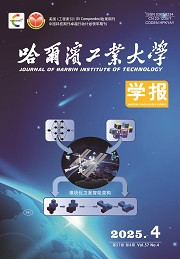| 引用本文: | 张思钰,张勇敢,刘斯宏,鲁洋.膨胀土巴西劈裂强度及其破坏能量演化规律[J].哈尔滨工业大学学报,2023,55(11):125.DOI:10.11918/202303043 |
| ZHANG Siyu,ZHANG Yonggan,LIU Sihong,LU Yang.Evolution of Brazilian splitting tensile strength and its associated fracture energy in expansive soil[J].Journal of Harbin Institute of Technology,2023,55(11):125.DOI:10.11918/202303043 |
|
| 摘要: |
| 为探究膨胀土的抗拉强度及破坏特征演化规律,完整描述其拉伸破坏特性,通过试验验证巴西劈裂试验在膨胀土试样抗拉强度测定中的适用性,并在此基础上较为系统地探讨含水率和干密度对膨胀土抗拉强度及加载过程中能量演变的影响。结果表明:巴西劈裂试验对试验范围内的重塑膨胀土样具有较好适用性;试样抗拉强度随含水率升高而减小,且干密度越大减幅越大,随初始干密度增加而增大,且含水率越高增幅越小;膨胀土试样的破坏能与抗拉强度具有类似的变化趋势,但存在一“临界含水率”使得破坏能随含水率增加近似呈现双线性降低趋势,且该“临界含水率”随试样初始干密度的增加而增大。研究结果拓展了巴西劈裂试验的应用范围,并得到了将能量指标作为土体抗破坏能力辅助指标的工程启示。 |
| 关键词: 膨胀土 巴西劈裂试验 临界含水率 抗拉强度 破坏能 |
| DOI:10.11918/202303043 |
| 分类号:TU443 |
| 文献标识码:A |
| 基金项目:国家自然科学基金(3,9);中央高校基本科研业务费专项资金(B220203029);江苏省研究生科研与实践创新计划(KYCX21_0511) |
|
| Evolution of Brazilian splitting tensile strength and its associated fracture energy in expansive soil |
|
ZHANG Siyu1,ZHANG Yonggan1,LIU Sihong1,2,LU Yang1,2
|
|
(1.College of Water Conservancy and Hydropower, Hohai University, Nanjing 210098, China; 2.International Joint Laboratory of Long-term Behaviour & Environmentally Friendly Rehabilitation Technologies on Dams(Hohai University), Nanjing 210098, China)
|
| Abstract: |
| In order to explore the tensile strength and the evolution of fracture characteristics of expansive soil, this study aims to provide a comprehensive description of tensile failure characteristics. The applicability of Brazilian splitting test in the determination of tensile strength of expansive soil samples was verified by experiments. Building upon this, effects of dry density and water content on tensile strength and energy evolution during the loading of expansive soil samples were systematically discussed . The results showed that the Brazilian splitting test was suitable for remodeled expansive soil samples within the test range. The tensile strength of soil decreased with the increase of water content, and the reduction is more significant with higher dry density. Besides, the tensile strength increased with the increase of initial dry density, and the increment became smaller with higher water content. The fracture energy of expansive soil samples has a similar trend to the tensile strength, but there is a “critical water content” at which the fracture energy showed an approximate bi-linear decrease with increasing water content. Moreover, the “critical water content” increased with the initial dry density of the samples. The research results have extended the application scope of the Brazilian splitting test and provided engineering insights on using energy index as the auxiliary measures for assessing of soil resistance to destruction. |
| Key words: expansive soil Brazilian splitting test critical water content tensile strength destructive energy |







